When a mass murderer describes a place in such terms, it perhaps speaks to its dangers, and Patek’s opinion of the provincial capital of North Sumatra is widely shared.
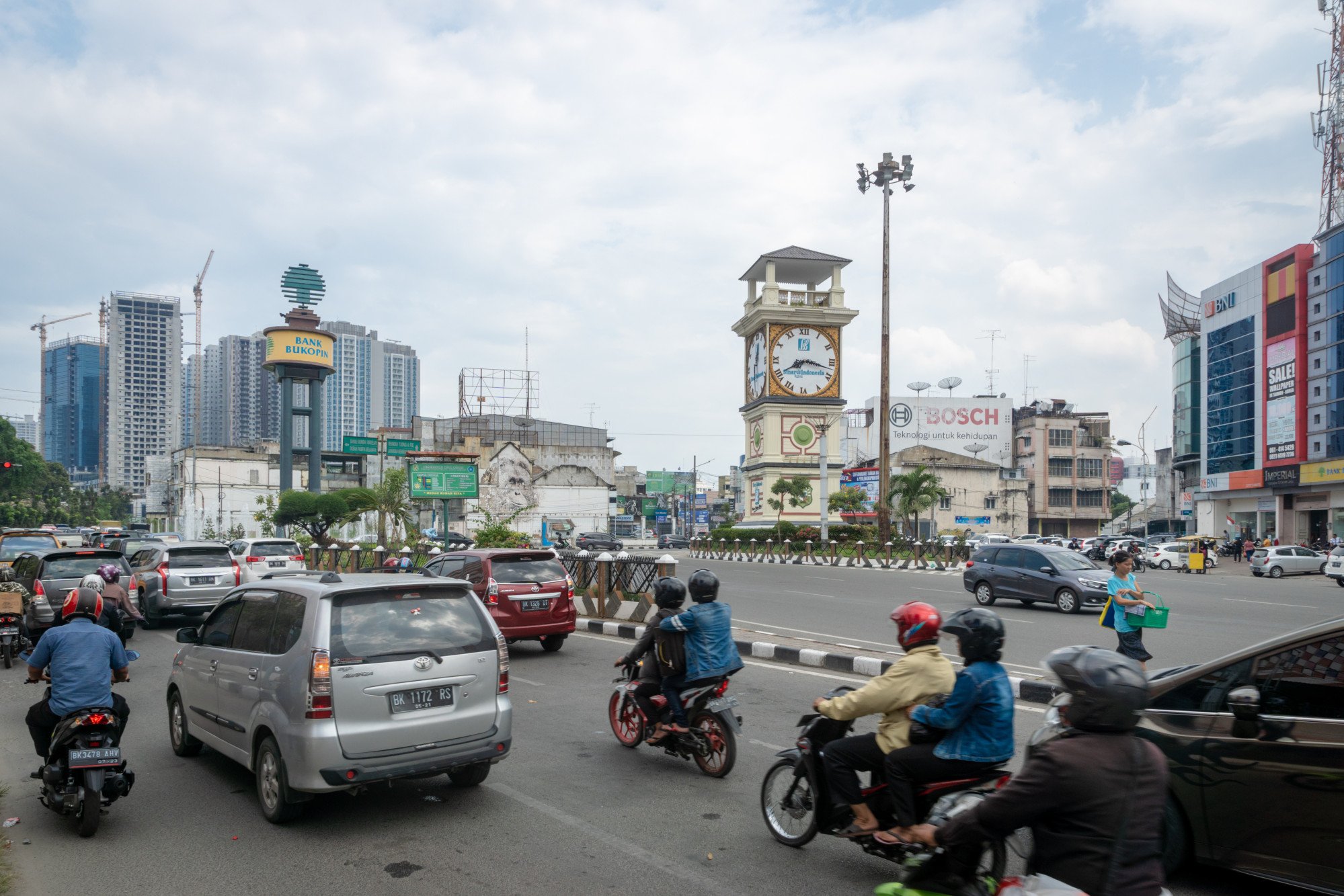
The fourth largest city in Indonesia, with a population of some 3.4 million people, Medan is so infamous across the rest of the country that it has its own nickname: Gotham City, after the metropolis in Batman comics synonymous with vice and crime.
Yet Medan is also the culinary capital of Indonesia, with domestic tourists and more than 260,000 from overseas flocking to the city annually to taste its delights, among which are lontong.
Compressed rice cakes moulded into a sausage shape, cut into slices and served in a spicy sauce with toppings such as boiled eggs, peanuts and sliced vegetables, Medan’s lontong are renowned for the sauce in which they are doused, and specialist restaurants exist all over the city.
It takes 10 hours to make the delicacy at Lontong Kak Lin, says its Medan-born owner, Rezka Tambunan. The restaurant was established in the 1980s by her grandmother on Jalan Teuku Cik Ditiro, opposite Public High School Number 1, from which many of Medan’s politicians and celebrities have graduated.
“I first learned the recipe from my mother when I was 13 years old,” says Tambunan. “The flavour of our lontong is different because of the spice mix we use, which is very special. We use turmeric, onions, chillies, candlenut and peanuts in the sauce. All the ingredients are sourced from Medan.”
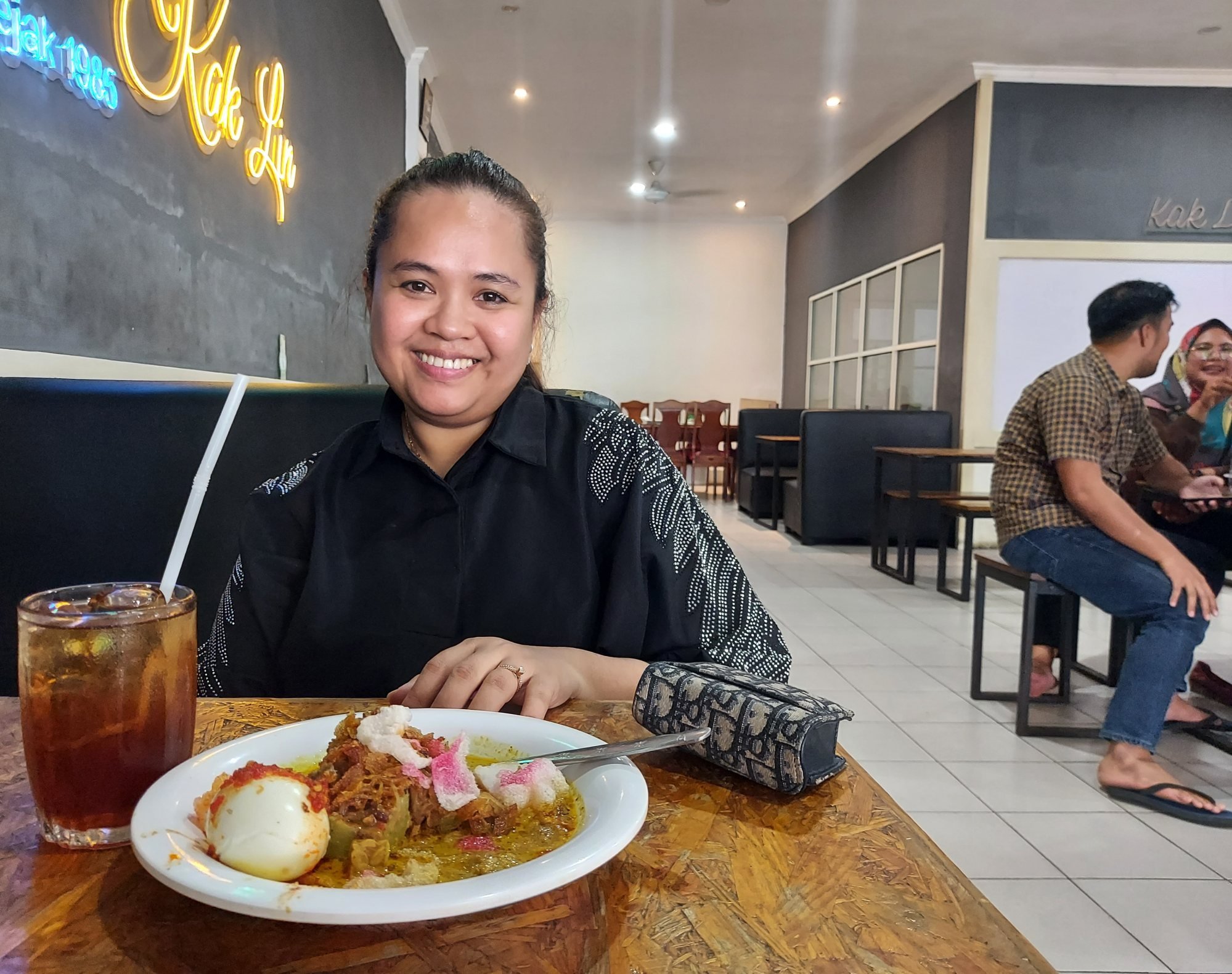
The need for an agricultural-, construction- and factory-based workforce to labour from sun up to sundown has shaped its cuisine, says Tambunan. “Traditionally, lontong are eaten for breakfast because Medanese like to feel full when they eat, so that they can focus on work,” she says.
To that end, a plate of lontong arrives – a quivering tower of compressed rice cakes, vermicelli noodles, chunks of tempeh and prawn crackers.
There are two types on offer at Lontong Kak Lin, the alternative to the traditional variety coming with a peanut sauce known as pecel.
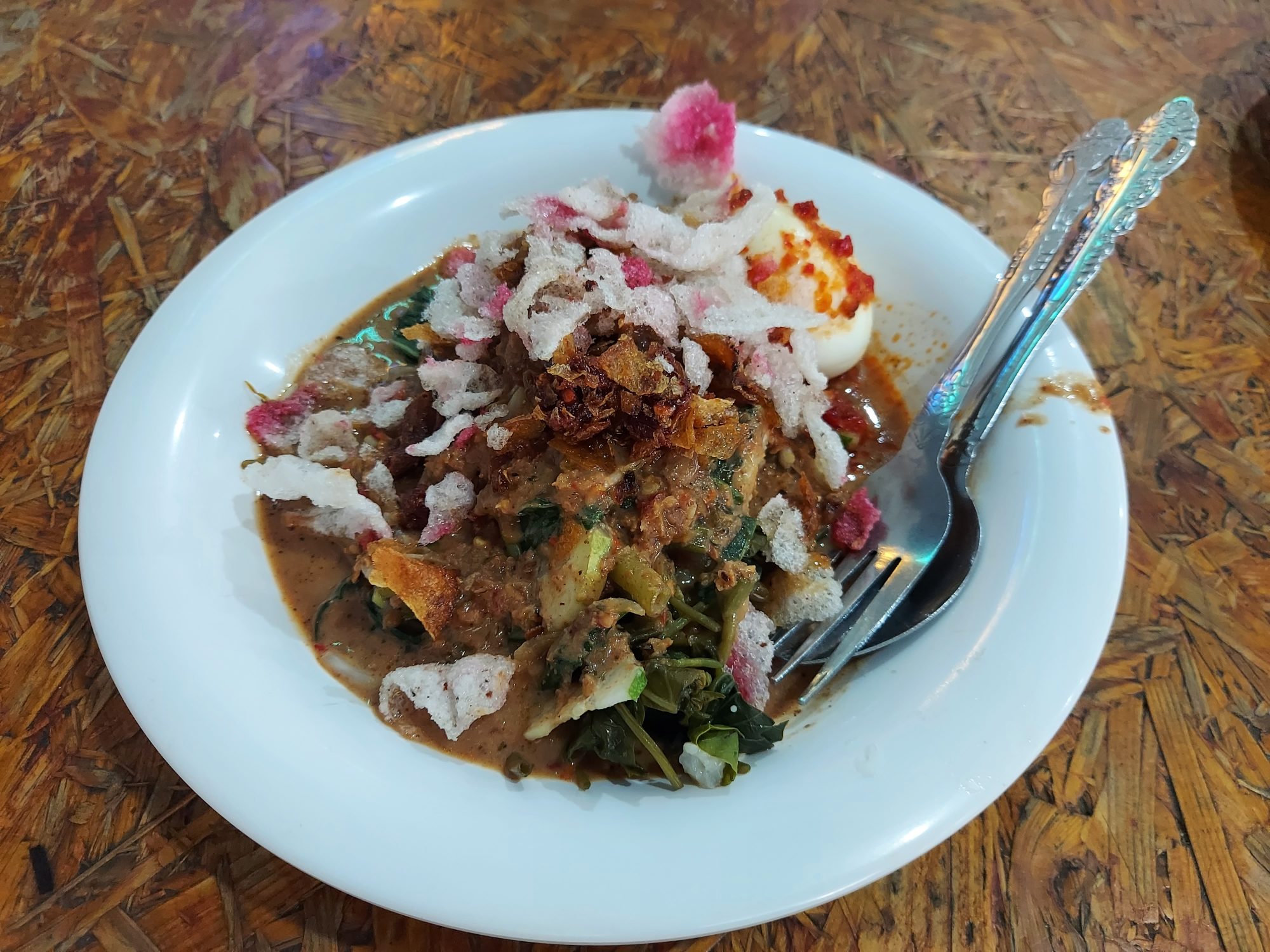
Tambunan says she recently sent 40kg of her pecel to the United States, where members of the Indonesian diaspora were clamouring for the sweet, chunky dressing, which is usually tossed through greens such as water spinach and served on top of the lontong.
Colourful Kampung Madras, the Indonesian name for Little India, is defined by its sari shops, full of fabrics in all colours of the rainbow encrusted with diamanté, and its firework stores, which have customers queuing down the street ahead of major holidays.
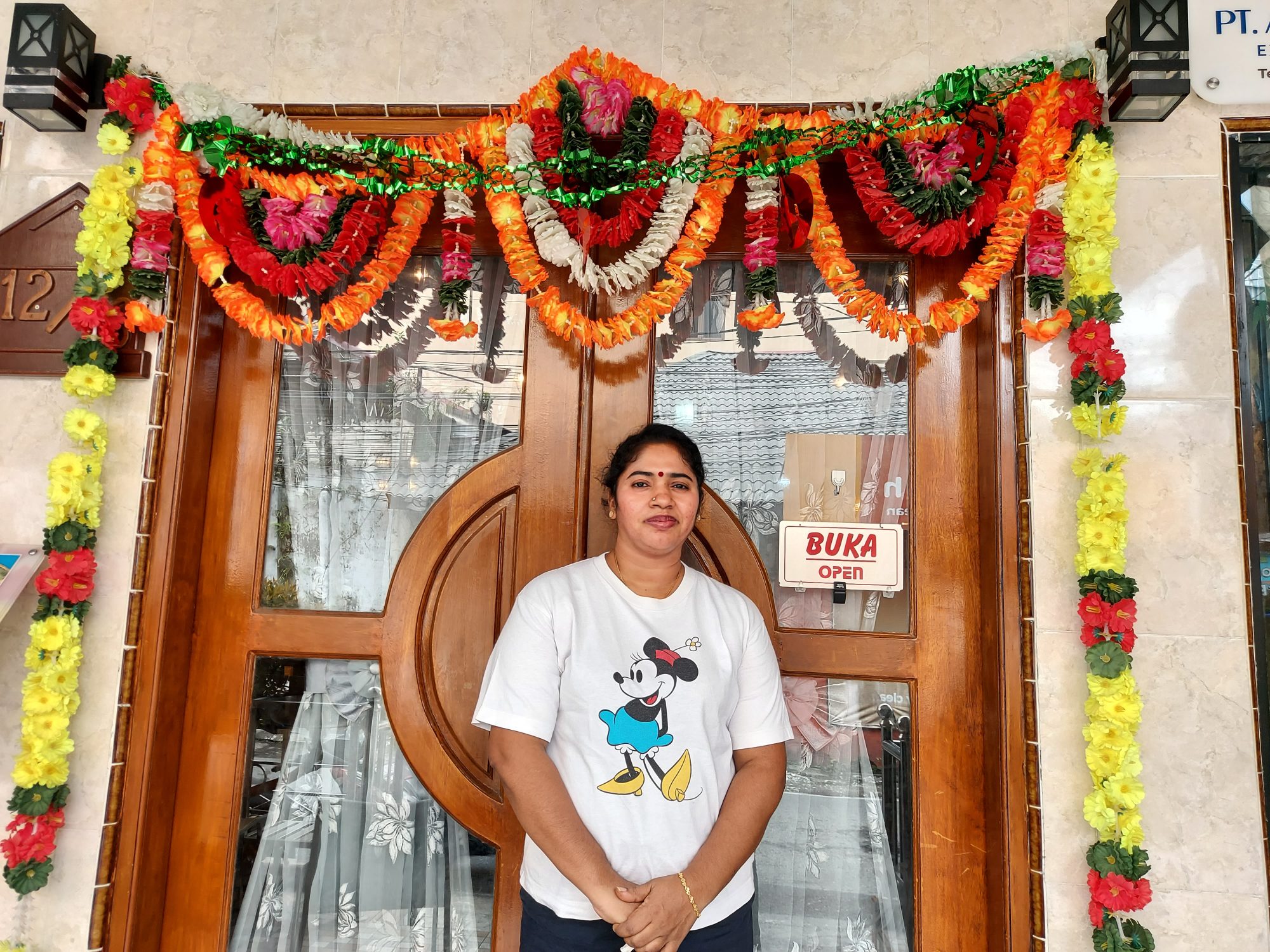
Malini (who, like many Indonesians, goes by just one name) is a co-owner of Little India’s Cahaya Baru restaurant.
“My mother-in-law taught me her recipes and now I cook them at the restaurant,” she says. “Most of the ingredients, like the spices, are imported from Malaysia, where they are easier to source and are higher quality. Some are available here but they are not as fragrant.”
Malini uses ingredients from both northern and southern India to make recipes handed down by her husband’s great-grandmother, who was born in Kerala, south India.
The restaurant is brightened by flower garlands and what look like Christmas decorations. Two large television screens play hip-hop videos while diners eat.
Asked about Medan’s similarities to Gotham City, Malini seems perplexed. “Medan is perfectly safe,” she says. “There is no problem with people visiting at all.”
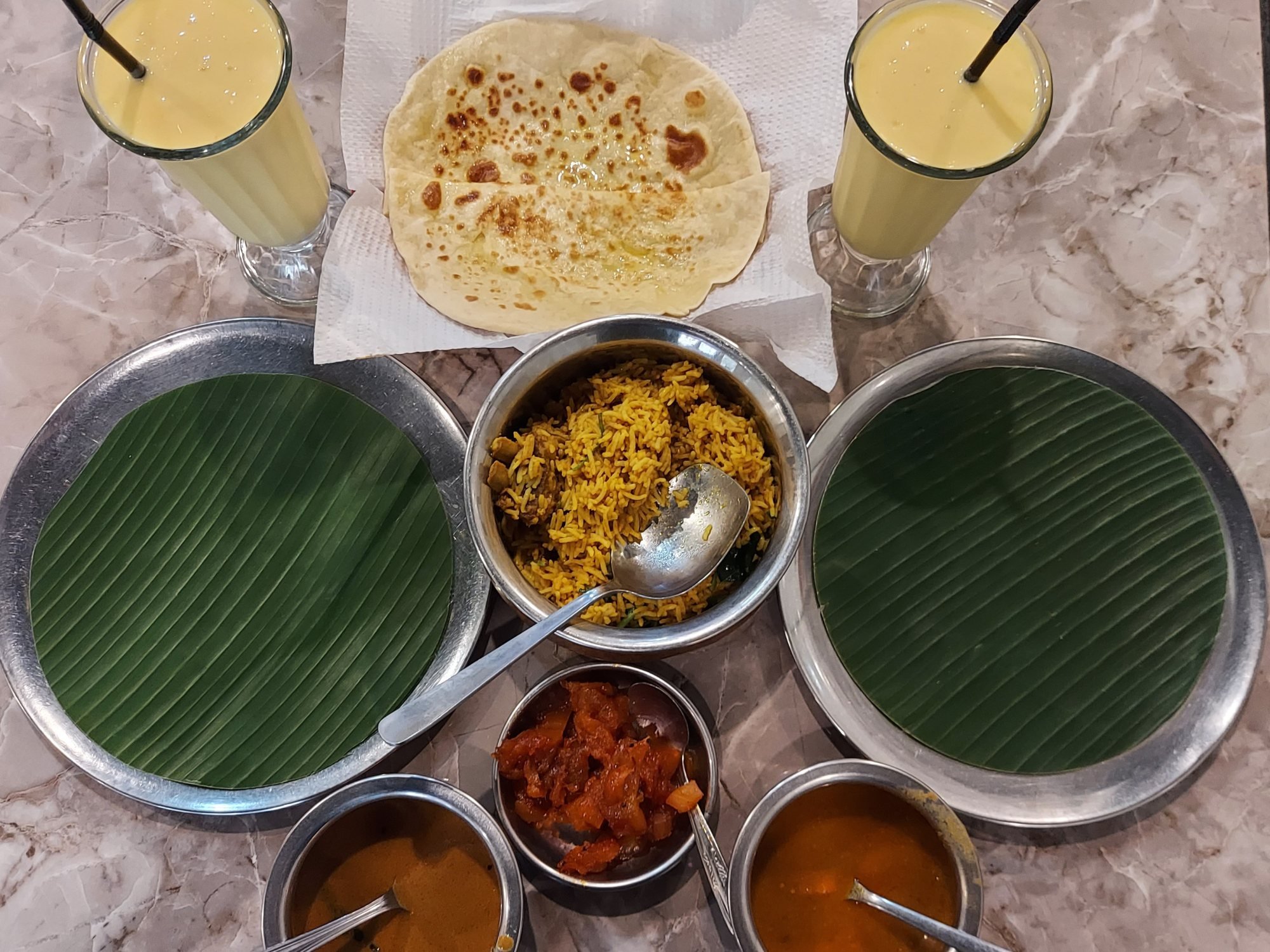
Chinese, Malaysian and Indonesian patrons frequent her restaurant, she says, and her bestsellers are mutton biryani – the meat falls off the bone when this writer tries it – and cheese nan bread, which is both pillowy and crisp, and is eaten with an array of condiments including curry sauce and pickled pineapple.
According to the Ministry of Religious Affairs, around 87 per cent of Indonesia’s population is Muslim, which means that pork and pork-based products do not feature heavily on menus across the country. Medan, however, is a notable exception.
Around 65 per cent of the population is Muslim, but there are sizeable communities of Buddhists, Catholics, Protestants and Hindus, and the food on offer reflects that diversity.
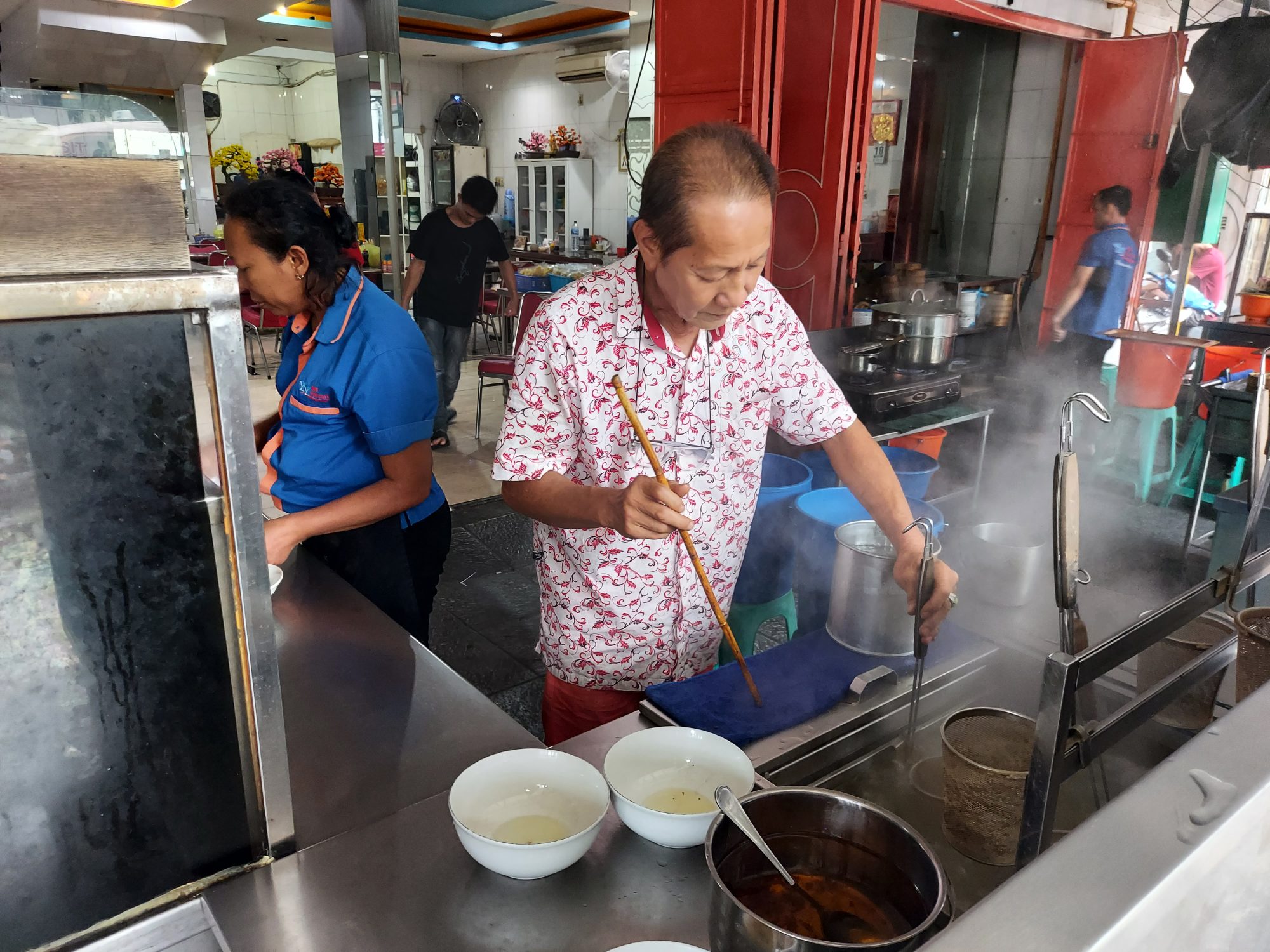
Johnson, a Chinese Indonesian whose father came from Taiwan, owns the restaurant YY Mie Pangsit with his wife, Yek Young, after whom it is named.
Like most Medan restaurants, YY Mie Pangsit stands beside a road seemingly forever clogged with traffic. Inside, in the restaurant’s two large rooms, the traffic noise drops to a low hum.
YY Mie Pangsit has been in business since 2002 and draws crowds from all over Indonesia with its toothsome noodles, made by hand every morning by Johnson and his son, Michael.
Customers tell me that if they come to Medan and do not eat here, it isn’t really a trip to Medan at all
Noodles made using a machine are tougher to chew, he says, and other businesses pump their noodles full of chemicals to stop them from spoiling. He and his son would not dream of taking such short cuts, Johnson says.
To illustrate the point, he whips out his phone and shows a short video of Michael making their noodles, which involves bouncing up and down on a wooden plank to flatten dough made with duck eggs.
The noodles are served in a broth, the ingredients of which Johnson will not divulge, and topped with pieces of pork cooked two different ways – boiled and smoked – half a boiled egg and items such as fried onions and chilli sauce.
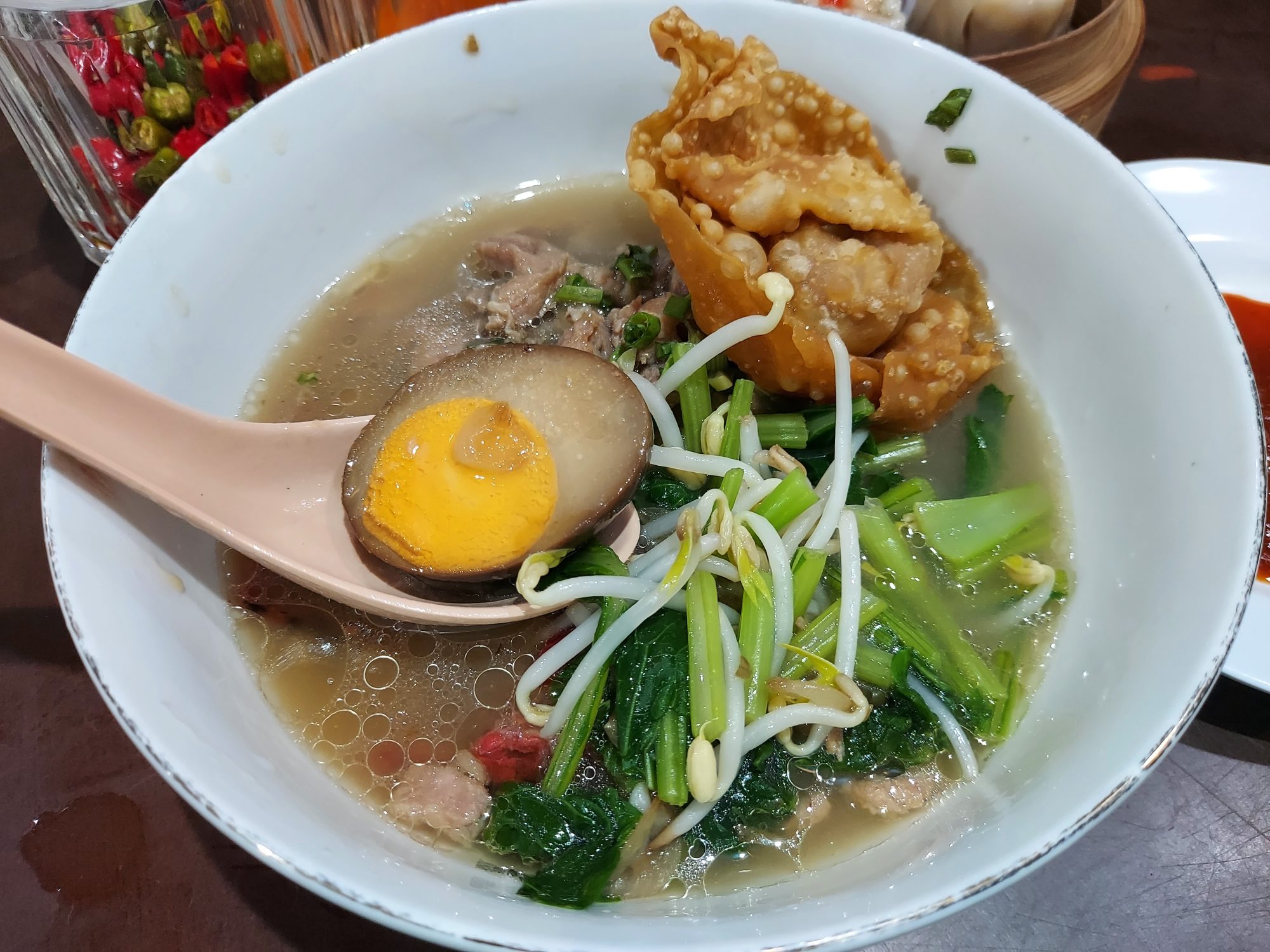
The restaurant is always busy, says Johnson, and opens seven days a week, including on major holidays. One patron tells me the soup noodles are the softest and freshest he has ever tried.
“Customers tell me that if they come to Medan and do not eat here, it isn’t really a trip to Medan at all,” Johnson says.
He, too, is keen to stress his belief in the safety of his city. He has never had any issues, he says, and customers from Jakarta, China, Singapore, Hong Kong and Malaysia all appear undeterred by fears of vice and crime.
Although many people claim to be terrified of Medan, the Indonesian Bureau of Statistics 2023 Crime Report suggests North Sulawesi, West Papua, South Sulawesi and the Jakarta Metropolitan Area are all more crime-ridden (in that order) than North Sumatra – and there is scant evidence that it is more dangerous than any other large city.
Proof of this can be seen in the number of people keen to visit the city, attracted by Medan’s noodles, Indian curries, lontong and other culinary delights.

